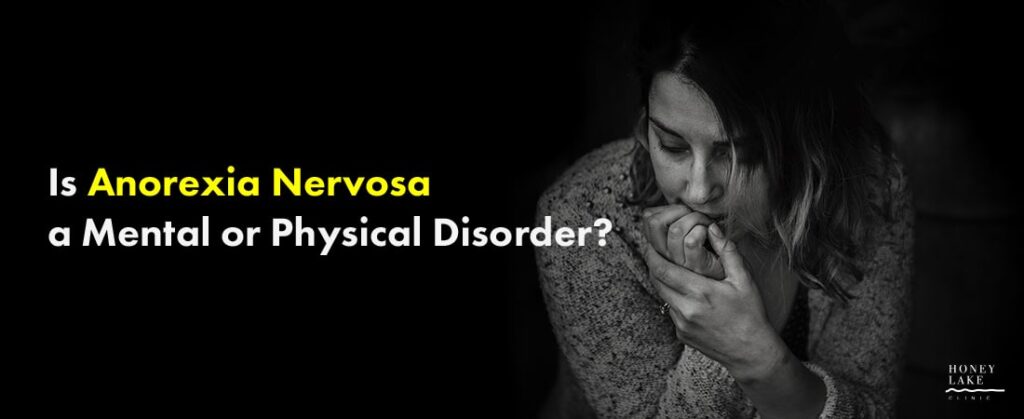Is Anorexia Nervosa a Mental or Physical Disorder?
Is anorexia nervosa a mental or physical disorder? The simplest answer is—yes. The more that is learned of anorexia nervosa, the more we’re recognizing the answer to this question is not an either/or, but a both/and.
Like other eating disorders, anorexia is both a mental and a physical illness. It is a complex medical and psychiatric illnesses that can have serious health, personal and relational consequences.
What is Anorexia Nervosa?
Anorexia nervosa is a potentially life-threatening eating disorder characterized by self-starvation, excessive weight loss and negative body image. Anorexia sufferers generally view themselves as overweight, even if they’re dangerously underweight. They tend to constantly monitor their weight, avoid eating certain types of foods and severely restrict their calories.
Eating disorders, including anorexia nervosa, bulimia nervosa, binge eating disorder and OSFED (other specified feeding or eating disorder), are biologically-based, serious mental illnesses, not fads, phases or lifestyle choices. A failure by insurers to recognize eating disorders as serious mental illnesses has resulted in difficulties for sufferers and their families in getting proper treatment covered. Neuroimaging, however, suggests eating disorders have a biological basis similar to what is observed in other serious mental disorders such as schizophrenia, bipolar disorder and addiction.
Eating disorders are biologically-based, serious mental illnesses because:
- There is medical and scientific evidence that anorexia nervosa is as heritable as other psychiatric conditions (e.g. schizophrenia, bipolar disorder and depression) that are considered biologically based.
- The behaviors of restricting food intake, bingeing and purging alters brain structure, metabolism and neurochemistry in ways that make it difficult for individuals to discontinue the behaviors.
- Eating disorders are associated with impairment in emotional and cognitive functioning that greatly limit life activities.
- Eating disorders are life-threatening illnesses and are associated with numerous medical complications. Mortality rates for anorexia nervosa are the highest of any psychiatric disorder.
All this points towards the conclusion that if you are suffering with anorexia, you’re battling a disease which comes to control mind and body, making recovery very difficult.
Treating Mind and Body
Complete recovery from anorexia is possible. Early treatment offers your greatest chance at success.
At Honey Lake Clinic, our experienced staff, licensed therapists, psychologists, and psychiatric specialists understand that effective treatment for anorexia nervosa and other eating disorders requires a multifaceted, faith-based approach, involving healing of the body, mind, and spirit. Our unique treatment programs specifically and deeply address all three spheres, offering each client his or her greatest chance at wholeness and transformative growth.
This holistic approach and a combination of key factors makes our mental health program at Honey Lake Clinic different from the others in the country.
You’ll benefit from Honey Lake’s—
- Integration of a Bible-based approach and sound psychological principles
- Experienced, compassionate, and highly trained clinical staff
- Individualized treatment with a low caseload of patients per therapist
- Practical curriculum focused on decision-making mechanics and skills
- Emphasis on holistic healing of the mind, body, and spirit
